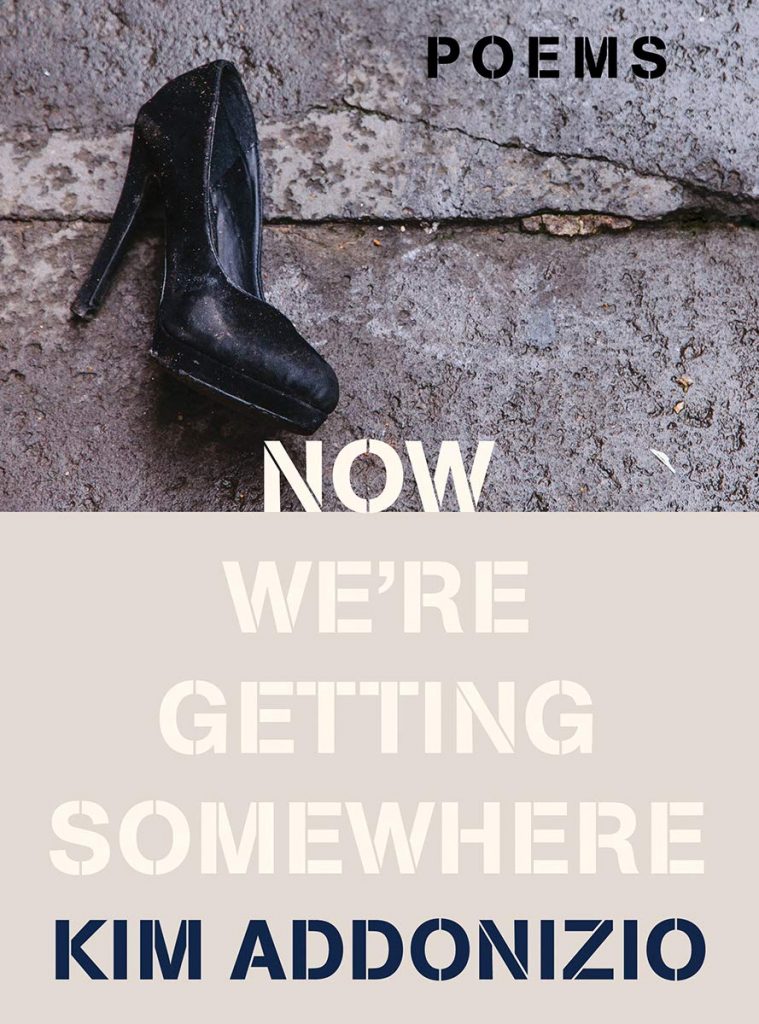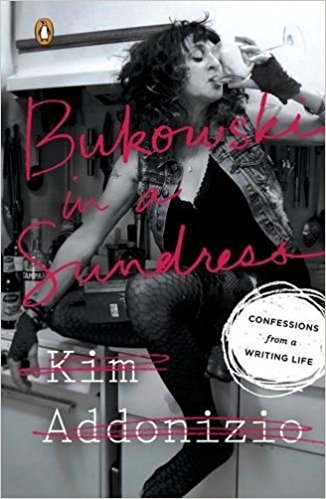
REVIEW BY GABINO IGLESIAS
—
Some poetry collections feel impersonal, as if the poet is on some kind of pensive examination of something and the reader is just along for the ride, a witness more than a participant in a conversation. Kim Addonizio’s Now We’re Getting Somewhere is the opposite of that. The writing in this collection is personal, but it also feels like a conversation, like Addonizio is talking to you, bringing you into her world, sharing her thoughts the way a friend would, over coffee or beer or from under their covers.
The beauty of Now We’re Getting Somewhere comes from its ugliness. I know what you’re thinking, but stay with me. Here’s the opening line of “Song for Sad Girls”: “Right now I feel like a self-cleaning microwave about to malfunction.” Bizarre. Brutal. Honest. Strangely relatable. She goes on:
“Sad girls, sad girl, you’re everywhere. Sick on the snake oil
of romance. Blundering in and out of beds
and squabbles with roommates. Scalded by raindrops.
Hating yourselves with such pure hatred.
Loving the music that makes it worse. This is that music.”
That music, the rhythms of doubt, the strident cacophony of self-hatred, permeates the collection. Addonizio creates a world where the real is always present. Drinking, rehab, heartbreak, loneliness; they’re all here, time and again, presented in a unique voice that somehow reminds us how universal that darkness is. “I never learn from my mistakes,” says Addonizio, and neither do we, but if the result of that is personal poetry like this, then I say the best thing we can do is keeping fucking up.
There are no weak poems in Now We’re Getting Somewhere, but the segment titled Confessional Poetry could easily be called its crowning jewel. In the short lines that make up that segment, Addonizio obliterates everything about confessional writing while simultaneously offering some of her own, which goes to show that some things are inescapable: Of confessional writing, she says:
“Writing it is like firing a nail gun into the center of a vanity mirror
or slowly shaking a souvenir snow-globe of asbestos & shame
to quiet an imaginary baby”
The darkness in this collection is oppressive because Addonizio knows how to remind readers about bad feelings. In “Archive of Recent Uncomfortable Emotions, we get a laundry list of them: the “however much I drink I can’t pretend it’s love feeling,” the “everything I write is shit feeling,” and the “my friends are no longer my friends feeling,” hit especially hard for me, but there is something in there for everyone.
Despite that darkness, there is plenty or light. No, wait; maybe I should say the light that can be found here is concentrated in a way that its strength is like that of a laser beam. While there is plenty of humor and brilliant lines, two of them will stick with readers like tiny, positive remoras clinging to their ribs. The first comes at the end of “To the Woman Crying Uncontrollably in the Next Stall”: “listen I love you joys is coming.” Short, but sharp and meaningful. The second slice of light closes the collection, and it packs so much that anything I said after it would be useless, so it also closes this review. This line is for you:
“Listen: when a stranger steps into the elevator with a bouquet of white roses not meant for you,
they’re meant for you.”
—
Gabino Iglesias is a writer, editor, literary critic, and professor living in Austin, TX. He is the author of ZERO SAINTS and COYOTE SONGS. You can find him on Twitter at @Gabino_Iglesias.
![[PANK]](https://pankmagazine.com/wp-content/themes/pank/assets/images/pank-logo-large.png)

